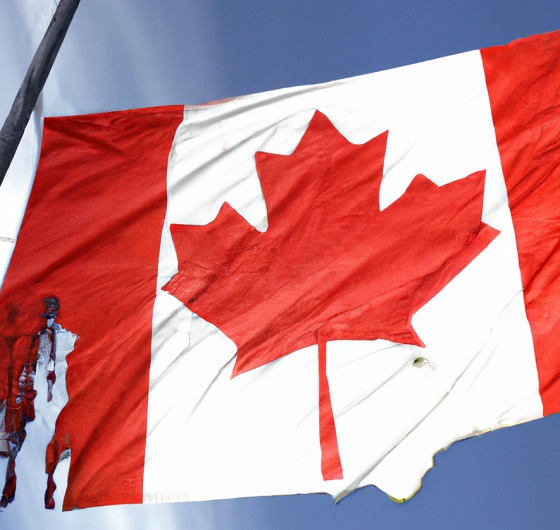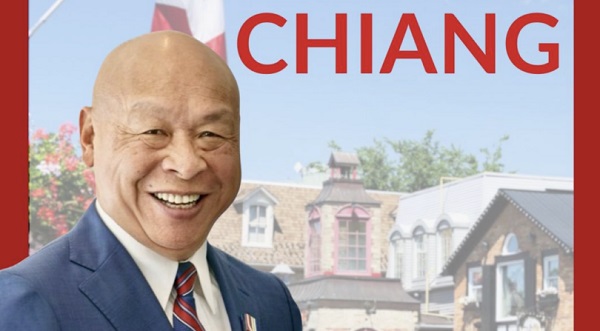espionage
Canada Lawmakers Helped Foreign Powers Influence Elections, Report Alleges

 From the Daily Caller News Foundation
From the Daily Caller News Foundation
The Canadian Parliament’s National Security Committee implicated multiple parliament members of “semi-witting or witting” cooperation with foreign powers to influence elections, according to a recent report.
The National Security and Intelligence Committee of Parliamentarians (NSICOP) supported their findings with 4,000 documents totaling 33,000 pages. Their findings allege “pervasive and sophisticated foreign interference” in Canadian politics, including allegations that multiple unnamed parliament members worked with foreign actors to influence elections and campaigns in 2019 and 2021.
China was called the most “prolific actor,” according to the report.
The NSICOP says alleged illegal activities by the Parliament members is unlikely to net criminal charges, citing in the report the difficulty of using classified information in judicial proceedings.
Opposition members to Prime Minister Justin Trudeau’s Liberal Party have pressured the government to release the names of the alleged implicated parliament members. Conservative Party Leader Pierre Poilievre spoke last Wednesday during question time in Parliament, demanding the names be revealed.
“The National Security Committee indicates there are members of this House who have knowingly worked for foreign hostile governments. Canadians have a right to know who and what is the information,” Poilievre said, “Who are they?”
So far, the government has not committed to releasing the names of the parliamentarians responsible. Public Safety Minister Dominic LeBlanc pushed back on releasing the names of the MPs in response to Poilievre.
“The leader of the opposition knows very well no government, including the government [of] which he was a member, is going to discuss particularities of intelligence information publicly. So he knows better than that,” LeBlanc said in the House of Commons. “He would be much more informed than he is now and we would invite him to do so, so he wouldn’t stand up and cast aspersions on the floor of the House of Commons without any information whatsoever.”
The report comes after previous investigations into foreign involvement in Canadian politics and society. Last September, Trudeau’s government charged Quebec Judge Marie-Josée Hogue to investigate foreign interference in elections after some alleged that China aided in mustering voters against a conservative candidate in Western Canada and helping elect a Liberal in Toronto, according to Politico.
The previous report from the NSICOP in 2019 did not specifically focus on the federal election that year, and instead was broader in scope, says the report.
Catherine Herridge
FBI imposed Hunter Biden laptop ‘gag order’ after employee accidentally confirmed authenticity: report

From LifeSiteNews
Two independent journalists found that the FBI could have set the record straight by confirming the laptop was real and the subject of an ongoing criminal probe. Instead, FBI leadership allowed the false narrative about the laptop to gain momentum.
In a shocking report published on X, independent journalists Catherine Herridge and Michael Shellenberger revealed that an FBI agent accidentally confirmed to Twitter (now known as “X”) that the Hunter Biden laptop story was real less than three weeks before the 2020 election.
“For the first time, and with a change of administration, the FBI has now turned over to GOP House investigators the internal chat messages that show Bureau leadership actively silenced its employees,” Herridge and Shellenberger wrote on X.
“The FBI, which had a special task force to counter foreign election interference, could have set the record straight by confirming the laptop was real and the subject of an ongoing criminal probe,” the journalists explained. “Instead, FBI leadership allowed the false narrative about the laptop to gain momentum.”
“In 2024, an FBI official admitted to House investigators that an FBI employee had inadvertently confirmed the authenticity of Hunter Biden’s laptop to Twitter on a conference call the morning of October 14, 2020, the day the New York Post published a story about it,” Shellenberger wrote.
“I recall that when the question came up, an intelligence analyst assigned to the Criminal Investigative Division said something to the effect of, ‘Yes, the laptop is real,’” testified the then-Russia Unit Chief of the FBI’s Foreign Influence Task Force in a closed-door transcribed interview,” according to Herridge and Shellenberger. “I believe it was an (Office of General Counsel) attorney assigned to the (Foreign Influence Task Force) stepped in and said, ‘We will not comment further on this topic.’”
They recounted this exchange:
An individual whose name is blacked out, tells Elvis M. Chan, the San Francisco-based FBI special agent tasked with interacting with social media companies, there was a “gag order” on discussion of Hunter Biden’s laptop. In a separate exchange, Chan is told “official response no commen(t).”
In the chat, the FBI officials showed awareness that the laptop may have contained evidence of criminal activity.
Asked Chan, “actually what kind of case is the laptop thing? corruption? campaign financing?”
Another FBI employee responds, “CLOSE HOLD —” after which the response is redacted.
To which Chan responds, “oh crap,” appearing to underscore the serious nature of the probe, which included felony tax charges. Chan adds, “ok. It ends here.”
In the same conversation, Chan is asked if “anyone discussing that NYPost article on the Biden’s?” Chan responds, “yes we are. c d confirmed an active investigation. No further comment.” “C D” is likely shorthand for the FBI’s Criminal Division.
Said another FBI employee, whose name was redacted by the Bureau, “please do not discuss biden matter.”
It’s now common knowledge that national security agencies — including the FBI and CIA, Big Tech, and much of corporate media — colluded in suppressing truth and manufacturing lies in order to drag their preferred candidate, Joe Biden, across the finish line in the 2020 presidential election.
Incriminating evidence discovered on the laptop that Hunter Biden had long ago abandoned at a computer repair shop — reported on in two devastating pieces by the New York Post at the time — was ignored by mainstream media, fraudulently dismissed by former national intelligence officials, and essentially made inaccessible to the public by Big Tech social media sites Twitter and Facebook.
The computer contained emails showing that then-Vice President Biden had come under the influence of bad actors in Ukraine and Communist China and had used his powerful position in the Obama administration to pressure government Ukrainian officials into firing a prosecutor who was investigating the energy firm, Burisma, which was paying the younger Biden $50,000 per month to sit on its board of directors.
2025 Federal Election
Liberal MP resigns after promoting Chinese government bounty on Conservative rival

From LifeSiteNews
“I find it incredible that Mark Carney would allow someone to run for his party that called for a Canadian citizen to be handed over to a foreign government on a bounty,” he said at a recent rally. “What does that say about whether Mark Carney would protect Canadians?”
Liberal MP candidate Paul Chiang has dropped out of the running after being exposed for suggesting Canadians turn in a Conservative Party candidate to the Chinese consulate to collect a bounty placed on the man by the communist regime.
In an March 31 statement, Chiang, the Liberal candidate for the Markham-Unionville riding, announced his departure from the race after a video of him suggesting a bounty could be claimed for Conservative candidate Joe Tay by handing him over to Chinese authorities circulated on social media. The Royal Canadian Mounted Police have announced they are “probing” the comments.
“I am proud of what we have achieved together and I remain deeply grateful for the trust placed in me,” he said. “This is a uniquely important election with so much at stake for Canadians. As the Prime Minister and Team Canada work to stand up to President Trump and protect our economy, I do not want any distractions in this critical moment.”
“That’s why I’m standing aside as our 2025 candidate in our community of Markham-Unionville,” he announced.
Chiang’s resignation follows backlash from Conservatives and Canadians alike when a January video from a news conference with Chinese-language media in Toronto resurfaced.
In the video, Chiang jokingly suggested that Tay, his then-Conservative rival for the Markham–Unionville riding, could be turned over to the Chinese Consulate General in Toronto in return for $1-million Hong Kong dollar bounty, about $183,000 CAD.
Conservative Party leader Pierre Poilievre was quick to call out Chiang’s suggestion and blasted Prime Minister Mark Carney for keeping him on the ballot.
“I find it incredible that Mark Carney would allow someone to run for his party that called for a Canadian citizen to be handed over to a foreign government on a bounty,” he said at a recent rally. “What does that say about whether Mark Carney would protect Canadians?”
Chiang has since apologized for his suggestion on both social media and personally to Tay.
“Today, I spoke with Joseph Tay, the Conservative candidate for Don Valley North, to personally apologize for the comments that I made this past January,” he wrote in a March 30 X post.
“It was a terrible lapse of judgement. I recognize the severity of the statement and I am deeply disappointed in myself,” he continued.
Carney has said remarkably little regarding the situation. First, he refused to fire the Liberal candidate, referring to Chiang’s statement as a “terrible lapse of judgment.”
“He’s made his apology. He’s made it to the public, he’s made it to the individual concerned, he’s made it directly to me, and he’s going to continue with his candidacy,” Carney said. “He has my confidence.”
Then, following the announcement of Chaing’s resignation, Carney told reporters that it was time to “move on” and that he would “leave it at that.”
-

 2025 Federal Election1 day ago
2025 Federal Election1 day agoMORE OF THE SAME: Mark Carney Admits He Will Not Repeal the Liberal’s Bill C-69 – The ‘No Pipelines’ Bill
-

 2025 Federal Election1 day ago
2025 Federal Election1 day ago‘Coordinated and Alarming’: Allegations of Chinese Voter Suppression in 2021 Race That Flipped Toronto Riding to Liberals and Paul Chiang
-

 2025 Federal Election1 day ago
2025 Federal Election1 day ago‘I’m Cautiously Optimistic’: Doug Ford Strongly Recommends Canada ‘Not To Retaliate’ Against Trump’s Tariffs
-

 Business19 hours ago
Business19 hours agoCalifornia planning to double film tax credits amid industry decline
-

 Business1 day ago
Business1 day agoCanada may escape the worst as Trump declares America’s economic independence with Liberation Day tariffs
-

 Alberta1 day ago
Alberta1 day agoEnergy sector will fuel Alberta economy and Canada’s exports for many years to come
-

 Alberta1 day ago
Alberta1 day agoBig win for Alberta and Canada: Statement from Premier Smith
-

 Catherine Herridge21 hours ago
Catherine Herridge21 hours agoFBI imposed Hunter Biden laptop ‘gag order’ after employee accidentally confirmed authenticity: report





